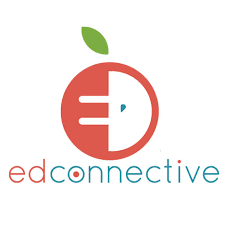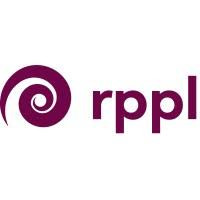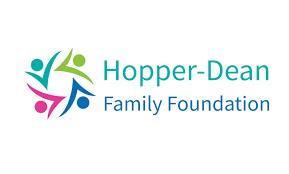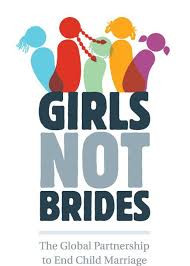Senior Evaluator to Lead on a Mid-term Review of the Technical Assistance Initiatives (TAI)
Background
Are you a very passionate advocate for education? Do you want to make a difference in the lives of children? The Global Partnership for Education Secretariat (GPE) would like to hear from you.
Who We Are
GPE is a shared commitment to end the world's learning crisis. It is the only global partnership and fund dedicated entirely to helping children in lower-income countries get a quality education, so they can unlock their potential and contribute to building a better world. We bring together governments, teachers, civil society, donors, United Nations agencies, development banks, businesses and private foundations to transform education systems so that every girl and boy can have hope, opportunity and agency.
What We Do
GPE helps low- and lower-middle-income countries to build stronger education systems so that all children can get the education they need to thrive. We currently support nearly 90 countries where the needs are greatest and focus on reaching the children who are the most vulnerable, including girls, children with disabilities and those affected by extreme poverty or conflict. Our unique approach works. Since 2002, 160 million more children in GPE partner countries have set foot in classrooms for the first time, more than half of them girls. GPE is also the largest provider of education grants in the global COVID-19 response, providing partner countries with vital resources to ensure that learning can safely continue.
How We Work
Now, GPE is working to help governments transform their education systems to get the most vulnerable children in school, improve teaching and learning, and build equitable, inclusive and resilient education systems fit for the 21st century. Between 2020-2025, GPE has supported transformative change in up to 90 countries and territories, which are home to 1 billion children. Transforming education is about creating lasting changes and achieving impact at scale. GPE sets out to deliver this transformative change by convening partners, mobilizing funds and catalyzing reforms to help partner countries accelerate access, learning outcomes and gender equality.
Governance And Organizational Arrangements
The GPE Board of Directors includes ministerial-level board members and alternates representing 20 constituencies that reflect the Partnership's breadth. The Board Chair is HE President Jakaya Kikwete and the Board Vice Chair is Ms. Christine Hogan. The Board of Directors, with its three standing committees, provides policy and strategic oversight and approves or delegates funding decisions.
The GPE Secretariat, with 160 employees and hosted by the World Bank, is responsible for translating the policies and strategies set by the Board into practical support for partner countries, coordinating with diverse stakeholders and galvanizing global support for SDG4. The Secretariat's headquarters are in the World Bank's offices in Washington, D.C., with a European office in Paris, an Africa office in Nairobi, a satellite office in Brussels, and a support office in Chennai.
About the Team
This position is located in the Data Hub of the Secretariat. The Hub's responsibilities is to lead GPE2025 Monitoring, Evaluation, and Learning (MEL) framework and help the Partnership learn from evidence. The MEL Framework was approved by the Board in December 2020 and is being operationalized through a five-year MEL work program.
About the Technical Assistance Initiatives
In December 2020, the GPE Board approved a new modality for engaging partners under the "Technical Assistance Initiatives" (TAI) heading to support its achievement of the GPE 2025 strategy. The aim of this work is to address critical cross-sectoral challenges by mobilizing technical partners to work actively to address identified capacity needs in countries, accelerating and reinforcing national efforts to collaborate across ministries for children's overall well-being.
TAIs address cross-sectoral challenges such as gender inequality, violence, hunger, technology access, and climate risks, that often lie beyond what education ministries can tackle alone. The current portfolio includes five cross-sectoral projects, for a total of US$33 million:
- Climate Smart Education Systems Initiative, to embed climate resilience and sustainability into education planning with partners like Save the Children and UNESCO.
- Gender Equality Initiative, to strengthen gender-responsive policy and engage youth and civil society.
- Safe Learning Initiative, to prevent and respond to violence in schools through policy, behavioral guidance, and monitoring.
- School Nutrition Technical Assistance Facility, to support sustainable, nationally owned school meal programs based on locally grown food.
- Technology for Education Initiative, to help ministries plan, coordinate, and evaluate digital education strategies in partnership with UNICEF and EdTech Hub.
TAIs seek to accelerate system transformation by combining expertise, targeted support, and learning, ultimately empowering countries to improve education outcomes through child-centered, sector-wide solutions. TAIs support partner countries through piloting and learning. That is, initiatives are implemented in selected countries to generate evidence, refine approaches, and then scale. Each initiative includes monitoring, evaluation, and cross-country exchanges to inform improvement. These initiatives enable the GPE Secretariat to leverage contributions from a wide range of partners, by connecting them to opportunities to support government-led education system transformation efforts.
About the Job
The GPE Secretariat is seeking the services of two individual consultants to serve as Senior Evaluators for the upcoming Mid-term Review (MTR) of the Technical Assistance Initiatives program. These consultants will work in tandem to fulfil the scope of work.
This consulting assignment is for 40 days of work, for each consultant.
The positions will be fully remote and will not involve any travel.
The work on MTR will begin in November 2025. Findings are expected to become available no later than July 2026. The full MTR work will complete by end-2026.
The main responsibility of the consultants will be to prepare the overall design and execute the MTR, ensuring alignment with GPE guidelines, GPE 2025 strategic objectives, and country-level operational contexts.
Together, the consultants will:
- Design a robust evaluation methodology, incorporating TAIs' theories of change and applying OECD-DAC evaluation criteria.
- Ensure the rigor and integrity of the MTR work, including technical quality, consistency, and timely delivery of all aspects of the work.
- Engage with key GPE stakeholders, including the GPE Secretariat, Ministry of Education, Local Education Groups, coordinating agencies, TAI grant agents, and other TAI partners, to ensure participatory and inclusive evaluation processes.
- Conduct qualitative and quantitative data collection and analysis, ensuring triangulation and credibility of findings, identifying bottlenecks and enablers, and focusing on gender equality and inclusion.
- Draft and validate high-quality MTR deliverables, incorporating key stakeholders' feedback. The Head Evaluator will lead on the preparation of a draft and final versions of the following:
- A brief inception report, including a questions matrix (maximum 10 pages excluding annexes) – due within 3 weeks of the consultants' start date, after an initial desk review has taken place as well as a methodology call with the GPE Secretariat.
- A short MTR report synthetizing the analysis, findings, and recommendations (maximum 20 pages, excluding annexes).
- A slideshow summarizing the MTR's methodology, findings, and recommendations.
- Present evaluation findings and recommendations to key TAI and GPE stakeholders, facilitating learning and reflection for course correction and strategic decision-making.
- Ensure ethical and culturally sensitive evaluation practices, in line with GPE's principles and ethical standards for evaluation per its 2021 evaluation policy.
The inception report and short mid-term review report should be written clearly and be impartial and constructive in tone. There should be creative use of tables and high-quality graphics, as needed.
Senior Evaluation Officer Anne Guison-Dowdy, from the GPE Secretariat's Data Hub, will be the Task Team Lead for the consultants. The Partnerships Team at the GPE Secretariat, who manages the TAI portfolio, will facilitate the sharing of relevant documents in a timely manner, and will facilitate access to TAI stakeholders for primary data collection.
Brief periodic meetings (weekly, or as needed) will be organized between the GPE Secretariat and the consultants, to ensure smooth implementation.
Purpose and Audience of the Mid-term Review
The mid-term review is expected to help illuminate key dimensions of the TAI portfolio to (a) enable the prioritization of TAI initiatives; and (b) help inform future design options for TAI under GPE 2030.
The findings of the MTR will be shared with the GPE Board's Program Impact and Learning Committee (PILC) in October 2026. Together with the replenishment results, these findings will serve as the evidence base for the GPE Secretariat to make a decision recommendation to the Board about the specific TAI initiatives to be prioritized under GPE 2030, as well as key design and implementation features of TAI under GPE 2030.
The audiences are GPE Partnerships Team (to support the design of TAI under 2030), the GPE Secretariat Management Team, and GPE Board and Committees, who take part in making decisions on the updated TAI design.
Key Methodological Considerations for the MTR
The MTR will explore the following questions:
- TAI's strategic fit and alignment: Evaluate the unique role and added value of TAI as a GPE instrument contributing to country education sectors – and what the findings reveal about TAIs' respective comparative advantage and potential to advance GPE's objectives. o Are TAIs contributing to improved coherence between sectoral and cross-sectoral efforts in education systems, and how is this coherence supporting the achievement of GPE's objectives? o Do TAIs complement or fill gaps in: (a) other GPE support at country level? (e.g. TAI's support to innovation, cross-country learning, engagement of line ministries beyond education, mainstreaming of gender/inclusion, etc.) that other instruments are not designed to do? (b) technical assistance delivered in countries through other partners, if any (examples from a few countries)? o How does the TAI mechanism compare against similar mechanisms for technical assistance, or against technical assistance provided through other GPE grant mechanisms initiatives? [To address this question, the consultants are expected to conduct a light benchmarking exercise.]
- Performance of TAI initiatives: Review the progress and results of current TAI-supported initiatives, including interim milestones achieved, implementation quality, and potential for sustained, long-term impact - and what this reveals about TAIs' potential to effectively deliver targeted technical support. o What design and implementation features are associated with stronger results across different TAIs, and under what conditions do they appear most effective?
- TAI's leveraging potential: Examine TAI's track record in mobilizing additional financial resources - and what this finding reveals about TAIs' potential to catalyze co-financing and related strategic partnerships. o Do TAIs successfully leverage co-financing, from which sources, in what amounts, and for what purposes, and what conditions enable or constrain this success?
For each MTR question, the consultants will be expected to identify:
- Key TAI design features and implementation practices that have been particularly advantageous or effective; those that should be adapted; and innovative practices worth scaling or replicating across other TAIs (the "what")
- Facilitating or hindering factors for specific phenomena, in and across regional and national contexts (the "why")
- Illustrative examples and contextualized insights across the TAIs
- Implications of the findings (or groups of findings) and related recommendations, including ways in which successful practices can be scaled or enhanced, and corrective actions that could improve underperforming practices (the "so what")
- How well current TAI efforts are incorporating gender equality, equity, and inclusion, and identifying opportunities to strengthen these dimensions
- Lessons on TAI's operations (i.e., how to improve the implementation of TAIs) and substantive work (i.e., what cross-sectoral innovations or approaches seem promising and transferable). This may involve: o Lessons on the implementation and design of TAIs, including effective strategies for fostering collaboration across sectors, stakeholder engagement, and adaptive management approaches that support innovation and learning in complex environments. o Lessons emerging from the pilot countries' experiences, including insights into cross-sectoral solutions to complex education challenges that may be relevant to other GPE partner countries, to inform future design and potential scaling of TAIs globally.
The consultants will utilize existing monitoring data and reporting and evaluation information generated through TAI's regular progress reports, interim evaluations of TAI initiatives (e.g. ongoing MTR of the School Health and Nutrition Technical Assistance Facility (TAF)), and programmatic documents.
These secondary data will be supplemented by primary data collection, which may include surveys, interviews, or focus group discussions. Potential interviewees may include ministry focal points from partner countries benefiting from TAIs, relevant local education group members, initiative partners, among others. All interviews will be conducted virtually.
Selection Criteria
Education Advanced university degree (master's or PhD) in education, international development, public policy, or a related field especially if related to one of the TAIs.
Experience Minimum of 10 years of experience leading complex evaluations, preferably in the education sector and cross-sectoral issues such as those covered in TAIs (climate, gender, safety, nutrition, technology), on large-scale or multi-country programs, and in multi-stakeholder partnership contexts.
Experience working in low- and middle-income countries, with a strong understanding of education systems, gender equality and inclusion, and systems thinking in such contexts, especially the most fragile ones.
Familiarity with GPE processes, education sector planning, grant mechanisms, and local education group coordination is highly desirable.
Competencies Excellent evaluation technical skills, with a proven ability to design and apply high-quality research methodologies.
Excellent analytical and writing skills, with a proven ability to produce timely, clear, concise, insightful, and actionable evaluation reports.
Outstanding interpersonal and communication skills, including the ability to engage effectively with varied stakeholders, including government, donors, and civil society.
Ability to work independently and manage complex assignments under tight deadlines.
Demonstrated commitment to ethical standards in evaluation, including respect for confidentiality and cultural sensitivity.
Fluency in English is required; proficiency in French or Spanish is an asset depending on the TAI country context.
Diversity and Inclusion
Poverty has no borders. Neither does excellence. This is why we continually search for qualified individuals with a diverse set of backgrounds from around the globe. We are proud to be an equal opportunity and inclusive employer with a dedicated and committed workforce, and do not discriminate based on gender, gender identity, religion, creed, race, color, ethnicity, sexual orientation or disability.
GPE has a zero-tolerance policy against all forms of sexual exploitation, abuse and harassment. Every GPE staff member is expected to abide by the GPE Prevention of Sexual Exploitation, Abuse and Harassment (PSEAH) policy and play an active role in identifying, reporting, and working to prevent SEAH at GPE. Not doing so will constitute a violation of their employment contract and will be grounds for dismissal.
Modalities to Apply
Please send your application (including your CV and a short statement of interest) to Rodolfo Scannone at rodolfosc@globalpartnership.org, no later than September 1, 2025.
If two applicants wish to apply as a team, they are welcome to submit a joint application. In that case, please include both CVs and a single, joint statement of interest. If selected, each individual will receive a separate contract with GPE / The World Bank.
This position was originally posted by GPE and has been curated by PurposePhil Career. To apply, please visit the original listing on the "apply" link below. We are not affiliated with the employer organization of this job ad or consultancy, and provide this curated listing as a service to our users.









